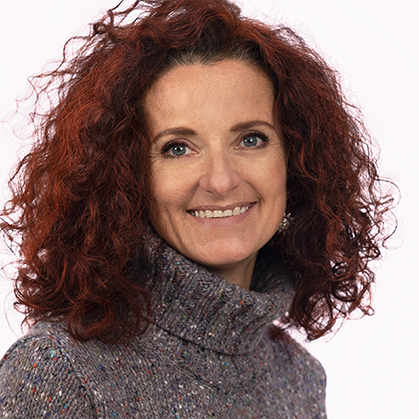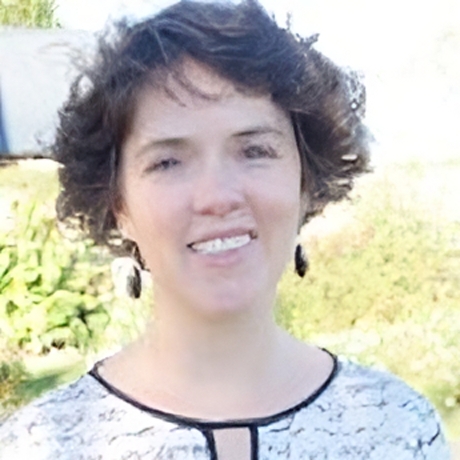Engaging Students in Active Learning
Engaging Students in Active Learning
Students and teachers: their relationship gravitates around learning. Look at reality from different perspectives, and fit learning objectives into each scenario to create an engaging and driven learning experience. These are the basis of active learning.
Course description
This MOOC, “Engaging Students in Active Learning”, is part of the “MOOCs for Teachers” series. It is addressed mainly to teachers who want to improve their effective support to students. It is also addressed to the ones who already engage students in their lessons, but still want to re-think about it and enhance even further the results of this collaboration. Any other participant interested in understanding the dynamics of learning is welcome to bring his/her distinct perspective.
The collaboration between all the subjects involved (teachers, students and tutors); the open-minded approach to embrace the perspective of each participant; the courage to continuously try something new; and the strong attitude to make students succeed are some of the key factors for an effective learning experience.
In this MOOC you’ll have the chance to listen about these factors directly from the voice of teachers who are familiar with active learning in very different contexts. You will have the chance to listen some tips to try active learning in your course, and go through a set of tools we will provide you and some useful resources shared by other institutions: you are invited to adapt them to your learning goals and try them in your classes.
You’ll have the chance to choose among three different levels of involvement, even if there is no explicit distinction in the contents, considering the effort you may put in it: reading and viewing, communication and production paths are available.
In this MOOC you’ll meet the following guests: Azra Aksamija (Associate Professor at MIT, USA) Katsusuke Shigeta (Associate Professor at Hokkaido University, Japan), Patricia Christie (PhD, instructor at Experimental Study Group, MIT, USA) and Jonathan Velázquez (Associate Professor, at Inter American University of Puerto Rico, USA).
Total workload of the course: 13 hours
This MOOC is provided by Politecnico di Milano, in collaboration with UNIT (Université Numérique Ingénierie et Technologie)

Intended Learning Outcomes
By actively participating in this MOOC, you will achieve different intended learning outcomes (ILOs).
Week 1 - Concrete experiences of Active Learning
- Define the concept of active learning
ESCO: education science - Go through some concrete experiences based on active learning and coming from different scenarios around the world
- Define your personal learning outcomes for this course
Week 2 - Reflect on the design and delivery of the activities
- Follow our guests sharing what they expected to obtain applying active learning strategies
- Reflect on the design strategies applied in their courses
ESCO: instructional design models - Analyse the challenges that may be encountered while applying active learning, in order to recognize them soon enough when designing the next learning path for your students
ESCO: learning needs analysis
Week 3 - The theory beyond practice
- Describe the methodologies that sustain active learning
ESCO: education science ESCO: pedagogy ESCO: instructional design models - Identify the most effective active learning strategies you may want to try
- Link the definition of deep learning together with the activities that foster it most
- Point out the strategies adopted by our guests and find what might suit your goals at best
ESCO: apply teaching strategies
Week 4 - Your turn to be active!
- Find some example of templates coming from literature and from our guests' experiences: you can reuse and adapt them to your learning goals in order to design activities for your courses
ESCO: apply teaching strategies ESCO: conduct educational activities - Recognize our guests' tips and tricks about designing activities for learning, in order to avoid some mistakes and make the most of your experiences with students
ESCO: perform classroom management ESCO: adapt teachings to students' capabilities
The pedagogical approach adopted in this MOOC
- Show the importance of the teaching approach you adopt in your courses
ESCO: education science ESCO: pedagogy - Put forward arguments about the mix between your role as a teacher, the teaching and learning strategies adopted and the flipped classroom approach
ESCO: teaching and training
Prerequisites
No prerequisite knowledge is required for this course, even if previous experience in didactics and teaching will be helpful. The course is mainly addressed to professors and teachers, at all levels, who are willing to think about some innovation in their pedagogical approach.
Activities
Over and above consulting the content, in the form of videos and other web-based resources (the reading path), you will have the opportunity to discuss course topics and to share ideas with your peers in the Forum of this MOOC (the communication path). The forum is freely accessible and participation is not guided; you can use it to compare yourself with other participants, or to discuss course contents with them. You can also perform design activities to build your own courses using templates and suggestions about new assessment strategies (the production path).
In addition to these different types of activities and levels of involvement, the course entails questions in the form of self-assessment quizzes or as hints for reflection, as well as discussion activities in the Forum and design activities in WEEK 4. You are not required to answer these questions or participate to activities to complete the course, but we strongly believe they offer you a concrete opportunity to improve your knowledge! Instead, the quiz you will find at the end of the core WEEKs (except WEEK 0 and the final section on the pedagogical approach) will be evaluated.
Section outline
-
Week 0 is an introduction to the MOOC, its structure and the main subject we are dealing with.
-
From week 1 to week 4 you’ll find the core part of the MOOC, dealing with Active Learning: you’ll start from concrete experiences and, through a deep reflection on them and a guided analysis of the theoretical background, you’ll reach the “hands on” part, in which you’ll have the chance to start using this approach for your own course’s design.
-
From week 1 to week 4 you’ll find the core part of the MOOC, dealing with Active Learning: you’ll start from concrete experiences and, through a deep reflection on them and a guided analysis of the theoretical background, you’ll reach the “hands on” part, in which you’ll have the chance to start using this approach for your own course’s design.
-
From week 1 to week 4 you’ll find the core part of the MOOC, dealing with Active Learning: you’ll start from concrete experiences and, through a deep reflection on them and a guided analysis of the theoretical background, you’ll reach the “hands on” part, in which you’ll have the chance to start using this approach for your own course’s design.
-
From week 1 to week 4 you’ll find the core part of the MOOC, dealing with Active Learning: you’ll start from concrete experiences and, through a deep reflection on them and a guided analysis of the theoretical background, you’ll reach the “hands on” part, in which you’ll have the chance to start using this approach for your own course’s design.
-
The final section focuses on the pedagogical approach applied in this MOOC as a whole. This section has been designed and developed by Université Numérique Ingénierie et Technologie. In this section you’ll have the chance, as a teacher, to reflect on the overall design phase of a course, as a meta-level.
-
-
Templates and Bibliography Page
-
Assessment
Your final grade for the course will be based on the results of your answers to the assessed quizzes. You have an unlimited number of attempts at each quiz, but you must wait 15 minutes before you can try again. You will have successfully completed the course if you score a total of 60% (or higher) in each of the assessed quizzes.
The maximum score possible for each quiz is given at the beginning of the quiz. You can view your score in the quiz on your last attempt or on the 'Grades' page.
Certificate
You can achieve a certificate in the form of an Open Badge for this course, if you obtain, at least, 60% of the total score in the graded quizzes and by filling in the final survey.
Once you have completed the required tasks, you will be able to access ‘Get the Open Badge’ and start issuing the badge. Instructions on how to access the badge will be sent to your e-mail address.
The Badge does not confer any academic credit, grade or degree.
Information about fees and access to materials
The course is delivered in online mode and is available free of charge.
Course faculty

Paola Corti
Paola Corti is a Project Manager at Politecnico di Milano – METID; she is an instructional designer involved in MOOCs design and production for POK platform. She coordinated the design of the course, involved international testimonials, together with other curators, in order to collect the experiences available in this MOOC, and she kept together the design and the production groups… and many are things needed : )

Ariane Dumont
Ariane Dumont, Professor at the Western Switzerland University of Applied Sciences, Educational Developer and responsible for promoting innovation in pedagogy. She will nicely guide you through some interesting models, which can support you in exploring and experimenting OERs according to her experience, which she is eager to share with us.

Aude Pichon
Aude Pichon, Advisor in Pedagogy in the Center for Professional Development in Education at the Ecole des Mines in Nantes and Coordinator, she has been in charge of the pedagogical development within uTOP (UNIT) in France. She not only advises on teacher training projects, but also develops them and leads them either face-to-face or remotely.
Contact details
If you have any enquiries about the course or if you need technical assistance please contact pok@polimi.it. For further information, see FAQ page.